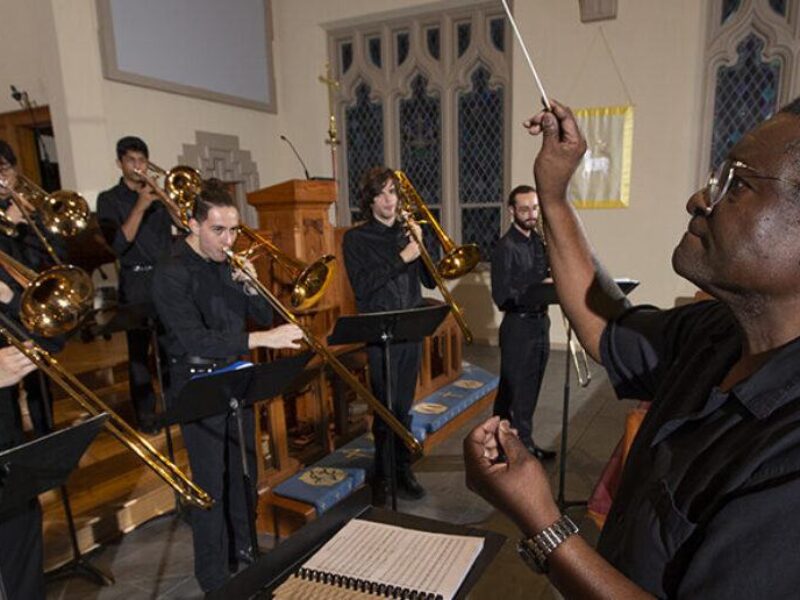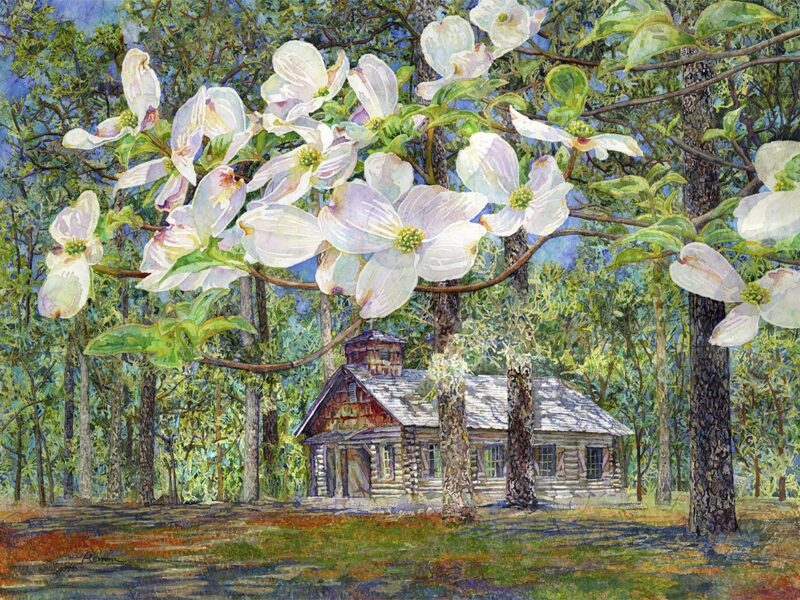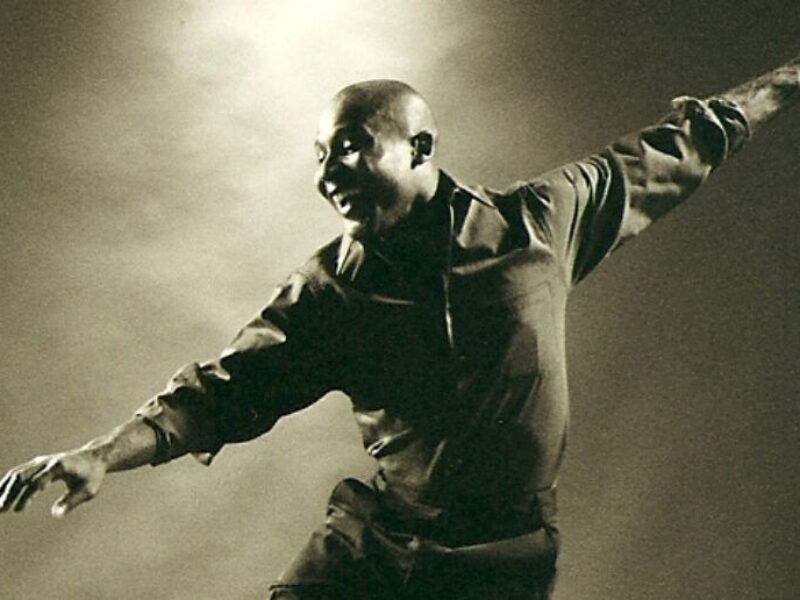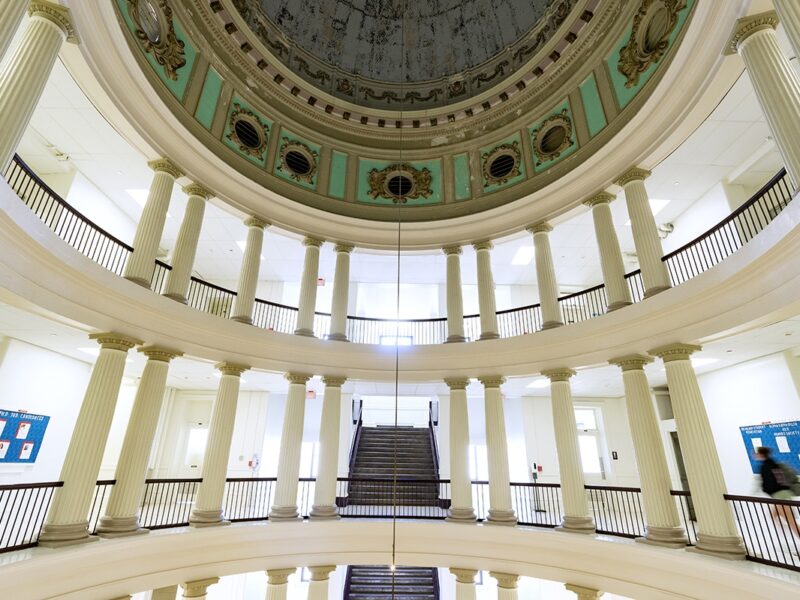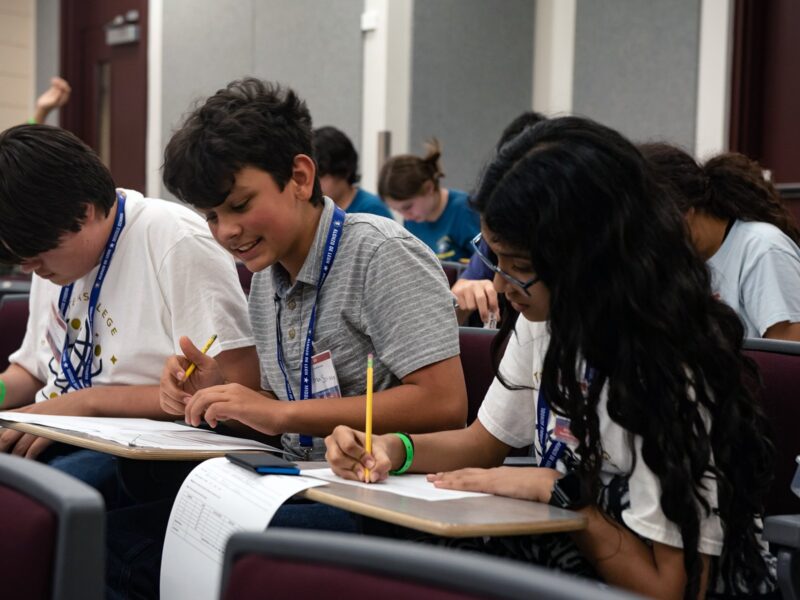Sharing And Preserving The Apollo 11 Legacy At NASA
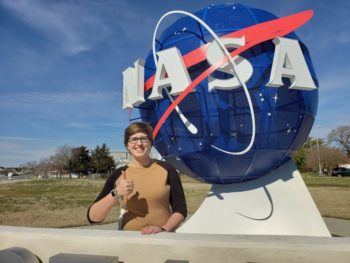
Andrea Lloyd, a Texas A&M University College of Liberal Arts telecommunication former student, is working as a digital media and communication specialist intern at NASA to share the story of the Apollo 11 moon landing 50 years after the historic event.
Lloyd’s primary responsibility at NASA Langley Research Center is to bring together all the pieces that tell the story of Apollo 11. The result was a well-organized resource packet that included over 500 links of videos, photos, fact sheets and educational resources for the public to be equipped with the narrative of one of history’s most significant achievements.
“I think it’s important to celebrate how we’ve been to the moon, and what these feats teach us about the universe and our nation,” Lloyd said. “Apollo 11 tells our history as Americans, and the huge part that NASA played in that. The public wasn’t supportive at first because they didn’t see how it would be possible, but NASA’s communication really changed that.”
As a communicator at NASA, Lloyd prioritized creatively sharing scientific information in a way others could easily understand. She credits her degree from the College of Liberal Arts for giving her the skills to write and edit clearly in order to help people understand concepts before they even ask for help. This process of making complex concepts communicable to the public was and is crucial for the furthering of scientific advancements.
Wernher Von Braun, the director of NASA’s Marshall Space Flight Center at the time and architect of the vehicle that launched humans to the moon, understood the importance of effective science communication. After the first moon landing he said, “without public relations and good presentations of these programs to the public, we would have been unable to do it.”
Lloyd, a member of the class of 2019, began as a math major at Texas A&M to pursue a career in the scientific world. However, she was discouraged as she discovered that her best talents were not in the area of math and believed this would keep her from pursuing her dream career. Soon after, she was redirected to science communication where she found a discipline that combined her love of communicating and her passion for science.
“I found out that there’s always a way to be involved in science, not just the technical skills that seem obvious,” Lloyd said. “Everyone needs everyone, and especially the skills that the liberal arts provide. It’s not limited to technical skills. Collaboration is crucial for success.”
For Lloyd, Apollo 11 illustrated that contributing to the progress of history is not limited to just one type of person, but needs the skills, backgrounds and collaborative efforts of us all.
“It was groundbreaking, and showed leaps in technology,” she said. “Appreciating the story and contributions of science in the past can give us great hope for what we have to look forward to in the future.”
This article by Alix Poth originally appeared on the College of Liberal Arts website.
